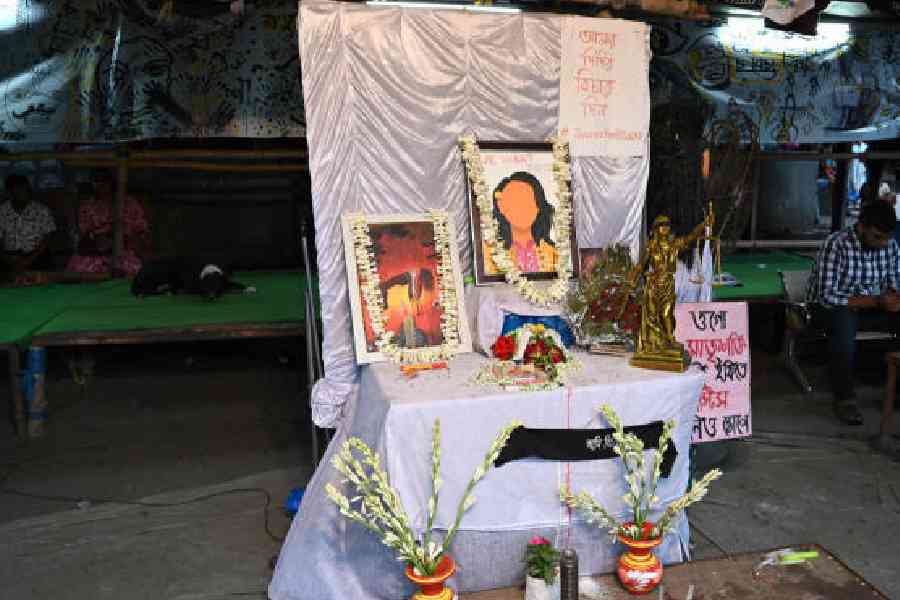The CBI is questioning some of those involved in the post-mortem of the RG Kar doctor for a better understanding of the crime.
The understanding is crucial before the agency seeks the opinion of another set of forensic experts on the report, sources said.
The CBI has so far not found enough evidence to suggest the involvement of more than one person in the rape and murder of the junior doctor and sources said it was necessary to understand whether the injuries that have been noted in the post-mortem report could be inflicted by one person.
The CBI has spoken to more than one forensic medicine expert from the three-member board that conducted the post-mortem.
On Thursday, the central agency questioned Apurba Biswas, a professor of forensic medicine at RG Kar, who was among the three. The CBI questioned Biswas for the second day in a row.
On Wednesday, Biswas and another forensic doctor, Molly Banerjee, were questioned.
Apubra Biswas, Molly Banerjee and Rina Das comprised the three-member board of forensic medicine experts who conducted the post-mortem on August 9.
“Biswas is the senior-most member of the team,” said a Kolkata Police officer who was a member of the Special Investigation Team that was probing the crime before the CBI took over.
The post-mortem was conducted in the presence of a judicial magistrate and several other doctors and the process was videographed.
The video of the post-mortem has been handed to the CBI, officers of Kolkata Police said. The report, the sources said, mentions the name of the videographer.
A CBI officer said: “We are trying to understand the findings of the post-mortem from the forensic medicine experts on two counts — pre and post-dissection of the junior doctor’s body,” said an officer.
The post-mortem report, sources said, lists 16 external wounds and nine internal injuries. The report says there were no fractures and injuries to the muscles, bones or joints.
CBI officers are trying to understand how the wounds were inflicted and what forensic medicine suggests about their nature, sources said, adding that it was vital to know why there were no bone fractures or muscle injuries.
The post-mortem report mentions “Rigor mortis (the stiffening of muscles after death) present all over”, but CBI officers want to know to what extent the rigor mortis set in when the experts found the body.
Rigor mortis, a senior forensic expert not related to the case, said ideally sets in within two to three hours of the death and is usually complete in six to eight hours.
“There are different stages. Rigor mortis is first noticeable in small muscles and gradually progresses to the entire body over time,” the forensic medicine expert said. “The degree of rigor mortis in a body suggests the time the crime was committed.”
A CBI team met Sanjoy Roy, the arrested Kolkata Police civic volunteer, at the Presidency jail on Thursday and collected samples of his bite.
Sources said Sanjoy was made to bite samples to different degrees, ranging from hard to soft. The impressions were collected before they were sent for forensic tests to the Central Forensic Science Laboratory, New Delhi.
The external injury marks on the junior doctor’s body would be tabulated with Roy’s bite marks, the sources said.
The CBI has also decided to send the dental braces found on the junior doctor to the lab in New Delhi.











